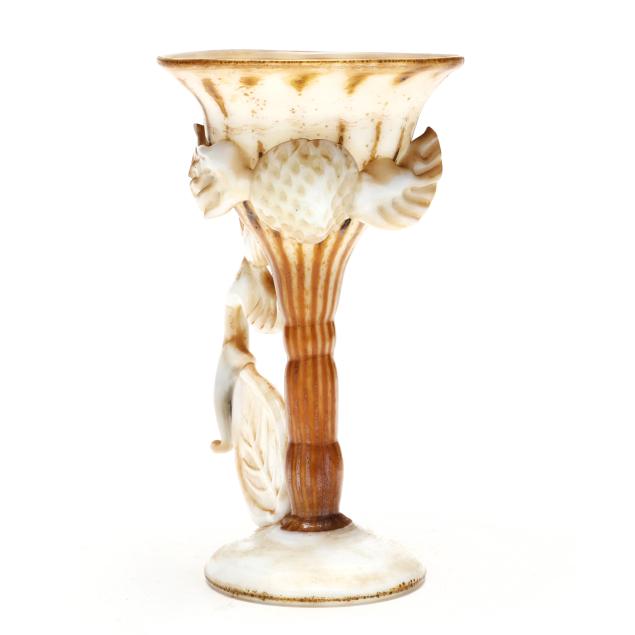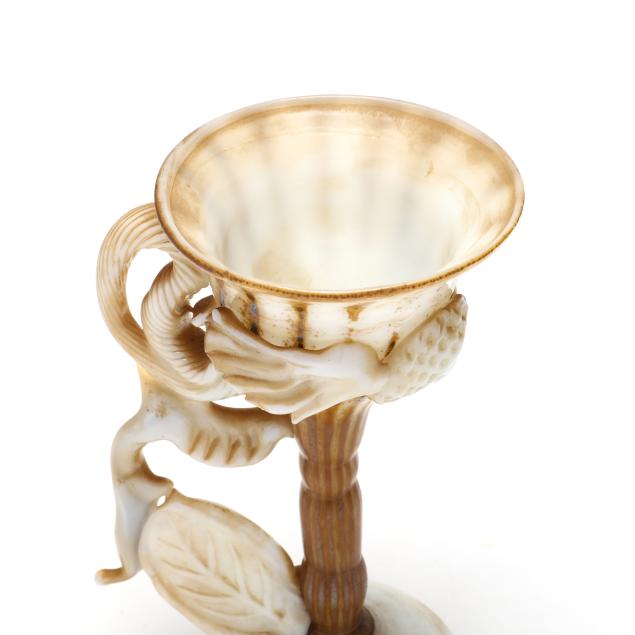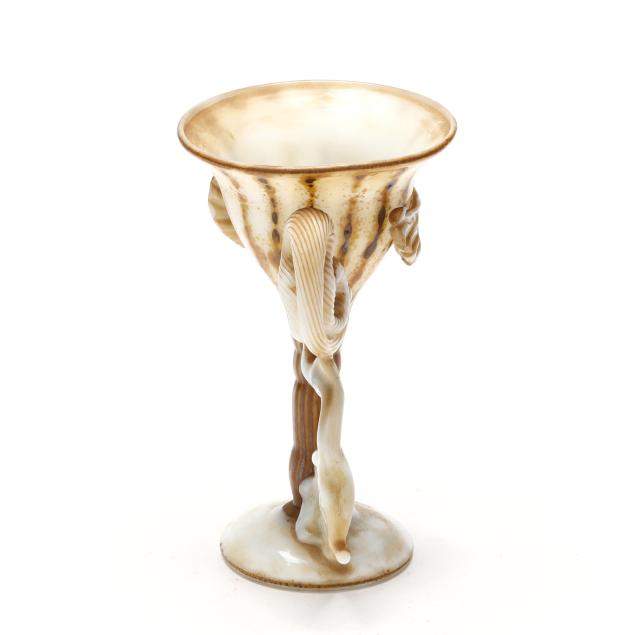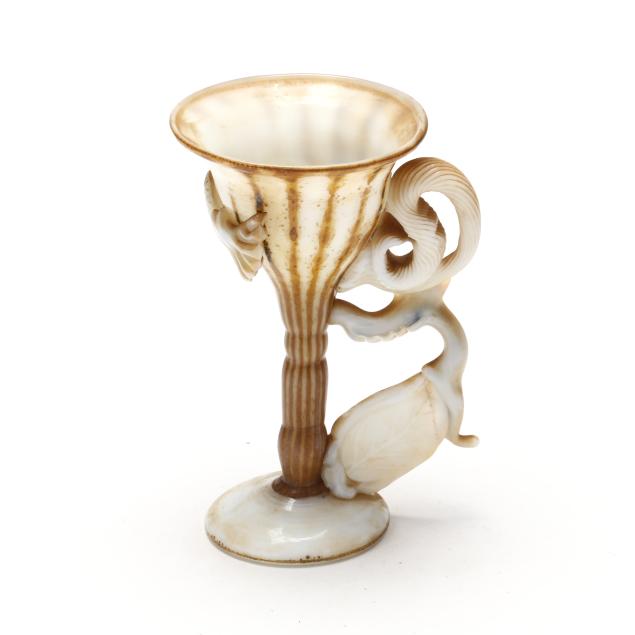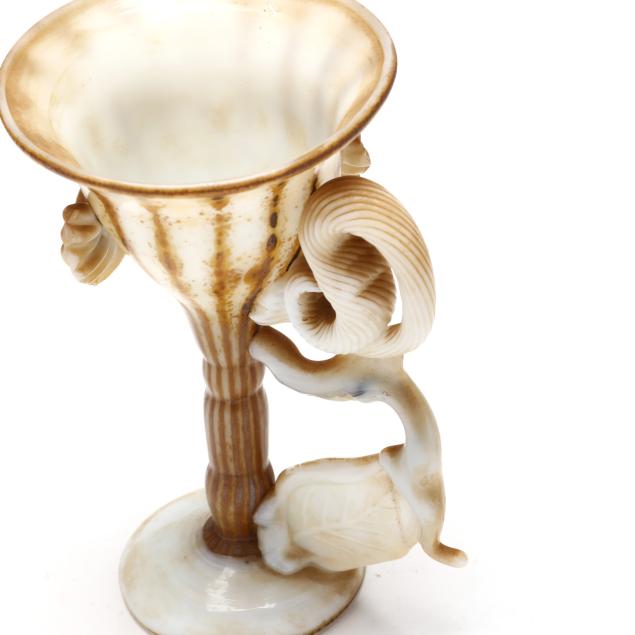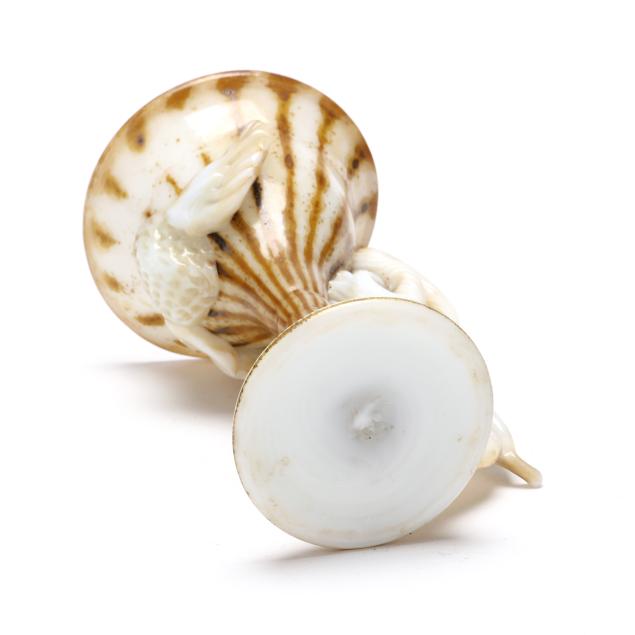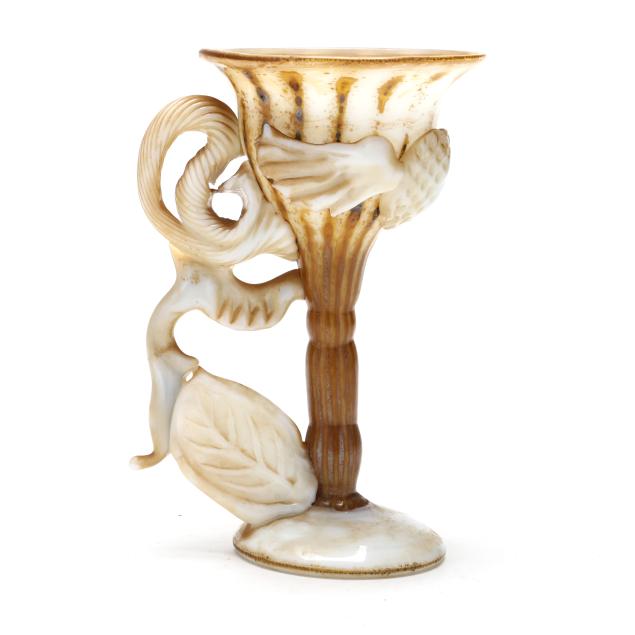
Lot 3309
Fritz Dreisbach (American, b. 1941), Studio Glass Goblet
Explore more items like this one.
Visit our Modern Art & Design Department Modern Art & Design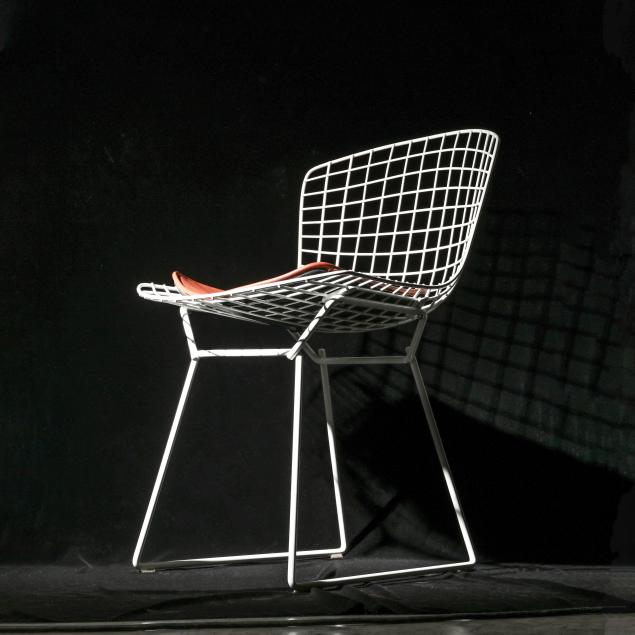
Lot Details & Additional Photographs
7 1/4 x 4 3/4 x 4 1/4 in.
Being sold to benefit Penland School of Craft, Penland, North Carolina
Penland’s scholarship program exists to make their workshops accessible to those who are not able to participate without financial assistance and to create educational opportunities for people who have been underrepresented at Penland and in the craft world. Proceeds from this auction will help fund existing scholarships, with some proceeds designated towards specific scholarships as noted in the listings.
Noted glass artist, Fritz Dreisbach is recognized as one of the pioneers of the American Studio Glass Movement. Crowned the “Johnny Appleseed of Glass” by his peers, Fritz has presented hundreds of lectures and demonstrations in over 175 distinct institutions, including the Smithsonian American Art, in over 56 years throughout North America, Europe and Asia.
Dreisbach started making glass in 1964 and has lectured and demonstrated glass art techniques all over the world. He is founder of the international Glass Art Society and his work is featured in many museums, private and corporate collections worldwide.
Living and working on Whidbey Island since 2010, Dreisbach continues his remarkable journey in glass, currently focusing his efforts on producing a series of wheel-carved and cameo-cut glass vessels, in addition to his singular show pieces: playful goblets, trick glasses, toy vehicles, and “Mongos.”
"Goblets have been interesting for me since I started to blow glass in 1964. Historically, goblets have always demonstrated the delicate fluidity of molten glass. They consist of three distinct sections or zones: the cup (for drinking), the foot (for support) and in the middle you can put anything you want. But, no matter how loose and organic the stems are, the lip and foot must still function!"
Good estate condition.
